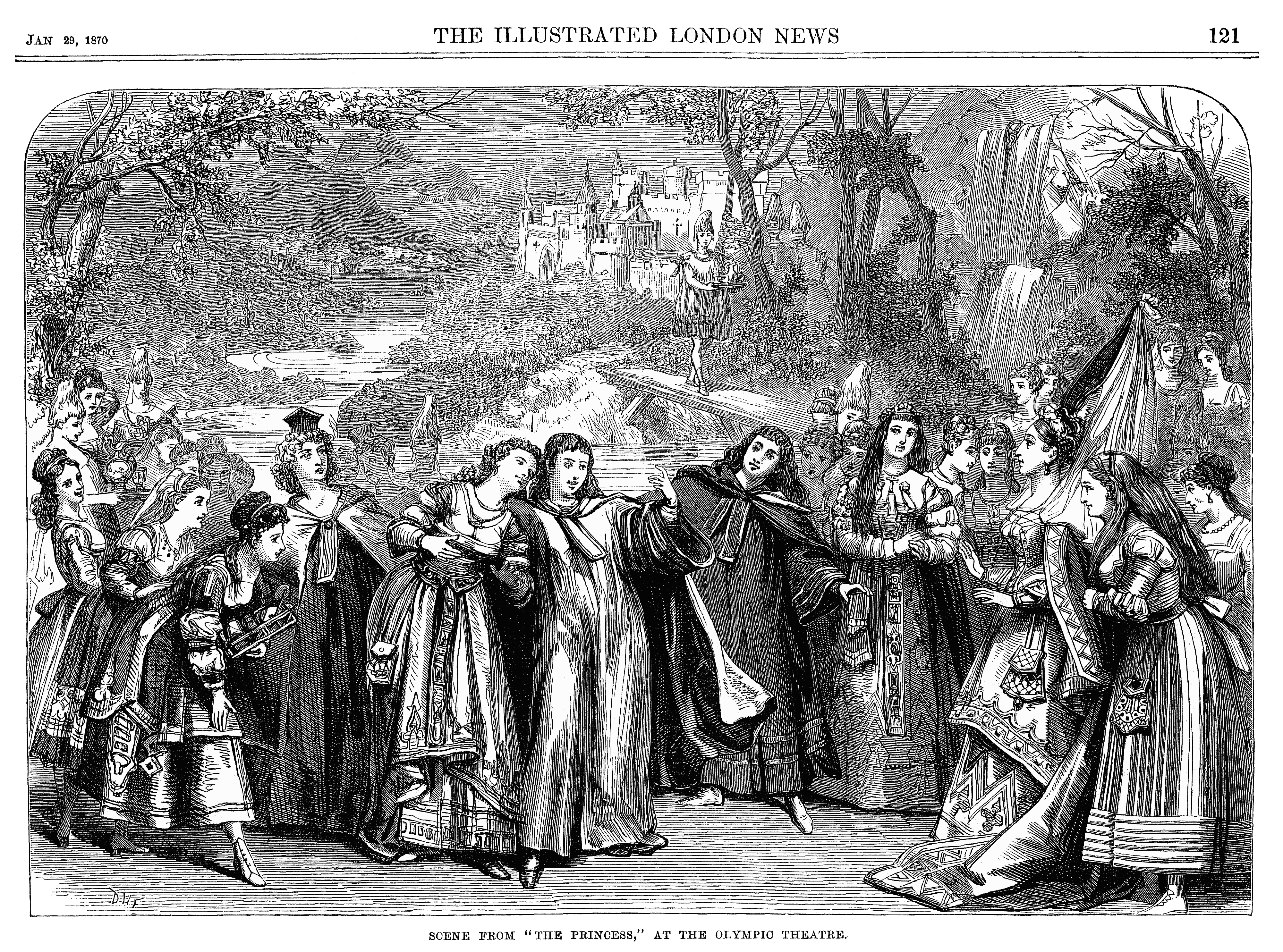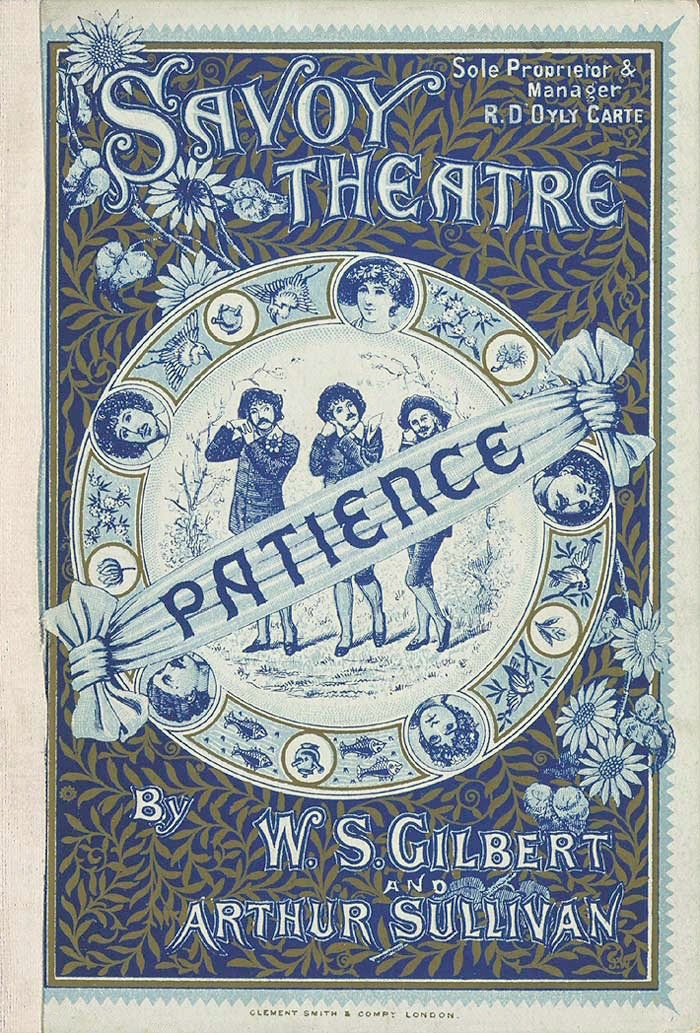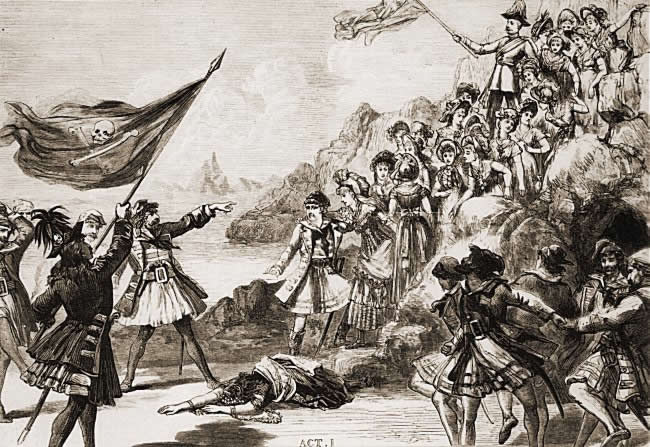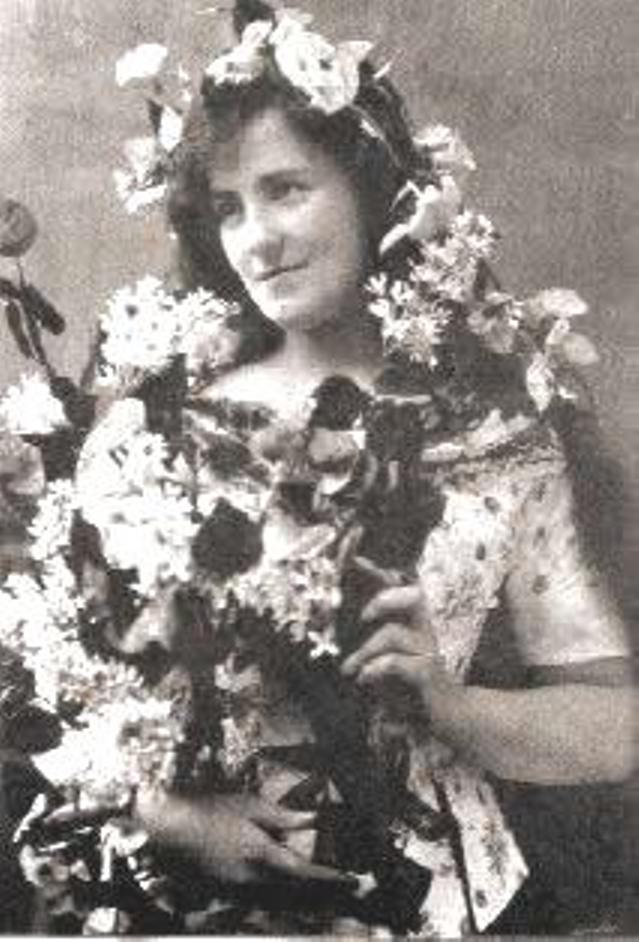|
Jessie Rose
Jessie Kate Rose (18 November 1875 – 27 May 1928) Gänzl, Kurt"Cartesians: Jessie Rose invades the 'C's!" Kurt of Gerolstein, 31 May 2020 was an English opera singer and actress primarily known for her performances as principal mezzo-soprano in the Gilbert and Sullivan comic operas with the D'Oyly Carte Opera Company. From 1896 to 1899 she originated several mostly smaller roles in Savoy operas and then continued to play a variety of smaller and larger roles in repertory with the company. She was its principal mezzo-soprano from 1904 to 1909. Life and career Early life and career Rose was born in Uxbridge, Middlesex, to Henry Rose, a tinsmith, and his wife Ellen (''née'' Masters). She was educated at Ealing and was given music lessons. In 1893 she enrolled at the Royal Academy of Music, earning a bronze medal in singing. She joined the D'Oyly Carte Opera Company in 1896 in the chorus of a revival of ''The Mikado'' at the Savoy Theatre. In March of that year she originated th ... [...More Info...] [...Related Items...] OR: [Wikipedia] [Google] [Baidu] |
The Lucky Star
''The Lucky Star'' is an English comic opera, in three acts, composed by Ivan Caryll, with dialogue by Charles H. Brookfield (revised by Helen Lenoir) and lyrics by Adrian Ross and Aubrey Hopwood. It was produced by the D'Oyly Carte Opera Company and opened at the Savoy Theatre on 7 January 1899 for a run of 143 performances. The opera starred the usual Savoy Theatre cast from that period, including Walter Passmore, Henry Lytton, Robert Evett, Ruth Vincent, Emmie Owen and Isabel Jay. Direction was by Richard Barker, choreography was by Willie Warde, and costumes were designed by Percy Anderson. Background The opera is based on '' L'étoile'', written in 1877 by Eugène Leterrier and Albert Vanloo, with additional material by Paul Verlaine and music by Emmanuel Chabrier. It is also based on '' The Merry Monarch'', an American translation of ''L'étoile'' by J. Cheever Goodwin with music by Woolson Morse, produced in 1890. Caryll used a small amount of Chabrier ... [...More Info...] [...Related Items...] OR: [Wikipedia] [Google] [Baidu] |
Princess Ida
''Princess Ida; or, Castle Adamant'' is a comic opera with music by Arthur Sullivan and libretto by W. S. Gilbert. It was their eighth operatic collaboration of fourteen. ''Princess Ida'' opened at the Savoy Theatre on 5 January 1884, for a run of 246 performances. The piece concerns a princess who founds a women's university and teaches that women are superior to men and should rule in their stead. The prince to whom she had been married in infancy sneaks into the university, together with two friends, with the aim of collecting his bride. They disguise themselves as women students, but are discovered, and all soon face a literal war between the sexes. The opera satirizes feminism, women's college, women's education and Charles Darwin, Darwinian evolution, which were controversial topics in conservative Victorian era, Victorian England. ''Princess Ida'' is based on a narrative poem by Alfred, Lord Tennyson called ''The Princess (Tennyson poem), The Princess'' (1847), and Gilb ... [...More Info...] [...Related Items...] OR: [Wikipedia] [Google] [Baidu] |
Iolanthe
''Iolanthe; or, The Peer and the Peri'' () is a comic opera with music by Arthur Sullivan and libretto by W. S. Gilbert, first performed in 1882. It is one of the Savoy operas and is the seventh of fourteen operatic collaborations by Gilbert and Sullivan. In the opera, the fairy Iolanthe has been banished from fairyland because she married a mortal; this is forbidden by fairy law. Her son, Strephon, is an Arcadian shepherd who wants to marry Phyllis, a Ward of Chancery. All the members of the House of Peers also want to marry Phyllis. When Phyllis sees Strephon hugging a young woman (not knowing that it is his mother – immortal fairies all appear young), she assumes the worst and sets off a climactic confrontation between the peers and the fairies. The opera satirises many aspects of British government, law and society. The confrontation between the fairies and the peers is a version of one of Gilbert's favourite themes: a tranquil civilisation of women is disrupted by a m ... [...More Info...] [...Related Items...] OR: [Wikipedia] [Google] [Baidu] |
Patience (opera)
''Patience; or, Bunthorne's Bride'', is a comic opera in two acts with music by Arthur Sullivan and libretto by W. S. Gilbert. The opera is a satire on the aesthetic movement of the 1870s and '80s in England and, more broadly, on fads, superficiality, vanity, hypocrisy and pretentiousness; it also satirises romantic love, rural simplicity and military bluster. First performed at the Opera Comique, London, on 23 April 1881, ''Patience'' moved to the 1,292-seat Savoy Theatre on 10 October 1881, where it was the first theatrical production in the world to be lit entirely by electric light. Henceforth, the Gilbert and Sullivan comic operas would be known as the Savoy Operas, and both fans and performers of Gilbert and Sullivan would come to be known as "Savoyards." ''Patience'' was the sixth operatic collaboration of fourteen between Gilbert and Sullivan. It ran for a total of 578 performances, which was seven more than the authors' earlier work, '' H.M.S. Pinafore'', and the ... [...More Info...] [...Related Items...] OR: [Wikipedia] [Google] [Baidu] |
The Pirates Of Penzance
''The Pirates of Penzance; or, The Slave of Duty'' is a comic opera in two acts, with music by Arthur Sullivan and libretto by W. S. Gilbert. Its official premiere was at the Fifth Avenue Theatre in New York City on 31 December 1879, where it was well received by both audiences and critics. Its London debut was on 3 April 1880, at the Opera Comique, where it ran for 363 performances. The story concerns Frederic, who, having completed his 21st year, is released from his apprenticeship to a band of tender-hearted pirates. He meets the daughters of Major-General Stanley, including Mabel, and the two young people fall instantly in love. Frederic soon learns, however, that he was born on the 29th of February, and so, technically, he has a birthday only once each leap year. His indenture specifies that he remain apprenticed to the pirates until his "twenty-first birthday", meaning that he must serve for another 63 years. Bound by his own sense of duty, Frederic's only sola ... [...More Info...] [...Related Items...] OR: [Wikipedia] [Google] [Baidu] |
The Emerald Isle
''The Emerald Isle''; ''or, The Caves of Carrig-Cleena'', is a two-act comic opera, with music by Arthur Sullivan and Edward German, and a libretto by Basil Hood. The plot concerns the efforts of an Irish patriot to resist the oppressive "re-education" programme of the English, which has robbed the Irish of their cultural heritage. A quirky "Professor of Elocution" who is hired by the English to continue this "re-education" of the Irish switches sides to help the Irish defend their culture. Romantic complications cause a confrontation between the Irish patriots and the superstitious English at the supposedly haunted caves of Carric-Cleena, and disguises are employed to hold the English off; but the professor ultimately comes up with a solution that works out happily for all. The opera premiered at the Savoy Theatre on 27 April 1901, closing on 9 November 1901 after a run of 205 performances. The opening night cast included such Savoy regulars as Robert Evett, Walter Passmore, H ... [...More Info...] [...Related Items...] OR: [Wikipedia] [Google] [Baidu] |
Miss Jessie Rose
Miss (pronounced ) is an English language honorific typically used for a girl, for an unmarried woman (when not using another title such as " Doctor" or "Dame"), or for a married woman retaining her maiden name. Originating in the 17th century, it is a contraction of ''mistress''. Its counterparts are Mrs., used for a married women who has taken her husband's name, and Ms., which can be used for married or unmarried women. The plural ''Misses'' may be used, such as in ''The Misses Doe''. The traditional French "Mademoiselle" (abbreviation "Mlle") may also be used as the plural in English language conversation or correspondence. In Australian, British, and Irish schools the term 'miss' is often used by pupils in addressing any female teacher. Use alone as a form of address ''Miss'' is an honorific for addressing a woman who is not married, and is known by her maiden name. It is a shortened form of ''mistress'', and departed from ''misses/missus'' which became used to signify ... [...More Info...] [...Related Items...] OR: [Wikipedia] [Google] [Baidu] |
The Morning Post
''The Morning Post'' was a conservative daily newspaper published in London from 1772 to 1937, when it was acquired by ''The Daily Telegraph ''The Daily Telegraph'', known online and elsewhere as ''The Telegraph'', is a national British daily broadsheet newspaper published in London by Telegraph Media Group and distributed across the United Kingdom and internationally. It was f ...''. History The paper was founded by John Bell (publisher), John Bell. According to historian Robert Darnton, ''The Morning Post'' scandal sheet consisted of paragraph-long news snippets, much of it false. Its original editor, the Reverend Sir Sir Henry Dudley, 1st Baronet, Henry Bate Dudley, earned himself nicknames such as "Reverend Bruiser" or "The Fighting Parson", and was soon replaced by an even more vitriolic editor, Reverend William Jackson, also known as "Dr. Viper". Originally a Whigs (British political party), Whig paper, it was purchased by Daniel Stuart in 1795, who made it into ... [...More Info...] [...Related Items...] OR: [Wikipedia] [Google] [Baidu] |
The Rose Of Persia
''The Rose of Persia''; ''or, The Story-Teller and the Slave'', is a two-act comic opera, with music by Arthur Sullivan and a libretto by Basil Hood. It premiered at the Savoy Theatre on 29 November 1899, closing on 28 June 1900 after a profitable run of 211 performances. The opera then toured, had a brief run in America and played elsewhere throughout the English-speaking world. The original cast included Savoy Theatre regulars Ellen Beach Yaw, Rosina Brandram, Emmie Owen, Louie Pounds, Isabel Jay, Walter Passmore, Henry Lytton and Robert Evett. Later, Decima Moore joined the cast as Scent-of-Lillies. The opera was regularly revived by amateur theatre groups, particularly in Britain, through the 1950s, but it has been produced only sporadically since then. The New York Gilbert and Sullivan Players produced the opera professionally in 2007 at New York City Center. Background and original production When the Gilbert and Sullivan partnership collapsed after the production of ... [...More Info...] [...Related Items...] OR: [Wikipedia] [Google] [Baidu] |
Trial By Jury
A jury trial, or trial by jury, is a legal proceeding in which a jury makes a decision or findings of fact. It is distinguished from a bench trial in which a judge or panel of judges makes all decisions. Jury trials are used in a significant share of serious criminal cases in many but not all common law judicial systems. The majority of common law jurisdictions in Asia (such as Singapore, India, Pakistan and Malaysia) have abolished jury trials on the grounds that juries are susceptible to bias. Juries or lay judges have also been incorporated into the legal systems of many civil law countries for criminal cases. Only the United States makes routine use of jury trials in a wide variety of non-criminal cases. Other common law legal jurisdictions use jury trials only in a very select class of cases that make up a tiny share of the overall civil docket (like malicious prosecution and false imprisonment suits in England and Wales), but true civil jury trials are almost entirel ... [...More Info...] [...Related Items...] OR: [Wikipedia] [Google] [Baidu] |
Haddon Hall (opera)
''Haddon Hall'' is an English light opera with music by Arthur Sullivan and a libretto by Sydney Grundy. The opera, set at the eponymous hall, dramatises the legend of Dorothy Vernon's elopement with John Manners, resetting the tale in the 17th century. It premiered at the Savoy Theatre on 24 September 1892 for a modestly successful run of 204 performances, closing on 15 April 1893. The piece was popular with amateur theatre groups, particularly in Britain, up to the 1920s, but it has been produced only sporadically since then. The National Gilbert & Sullivan Opera Company presented the opera in August 2018 in Buxton and Harrogate, England.Walker, Ramond J"Haddon Hall is a Grundy and Sullivan Rarity" ''Seen and Heard International'', 4 August 2018; and Hall, George"''Haddon Hall'' review at Royal Hall, Harrogate – 'rare resuscitation of Arthur Sullivan's pedestrian work'" ''The Stage'', 21 August 2018 Background When the Gilbert and Sullivan partnership disbanded after th ... [...More Info...] [...Related Items...] OR: [Wikipedia] [Google] [Baidu] |







